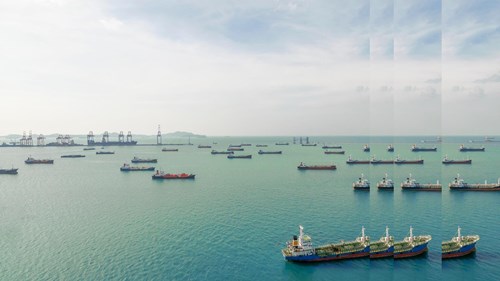Identification of shortcomings in the battle against money laundering by the Council of Europe
Last week, the Council of Europe published a monitoring report on the implementation of the obligation in Article 10 of the Council of Europe Convention on Laundering, Search, Seizure and Confiscation of the Proceeds from Crime and on the Financing of Terrorism of 16 May 2005 (1680a53db0 (coe.int)) in the various signatory states (“Report”).
According to Article 10 of Council of Europe Convention No 198 (CETS 198 - Council of Europe Convention on Laundering, Search, Seizure and Confiscation of the Proceeds from Crime and on the Financing of Terrorism (coe.int)) (“Convention”), signatory states are required to ensure the accountability of legal entities when acts of money laundering have been committed by or for the benefit of their executive bodies or officers. According to the findings of the report, although 35 of the 36 states have adopted regulations on the liability of legal entities, only 17 have fully complied with the obligation under Article 10 of the Convention. Germany is one of the states which has not fully implemented the Convention.
Although German law does not permit the criminal punishment of legal entities, fines can be imposed on legal entities and partnerships under section 30 of the German Regulatory Offences Act (Ordnungswidrigkeitengesetz) if executive bodies, employees or supervisors in a managerial function have committed criminal offences or regulatory offences. In addition, section 130 of the German Regulatory Offences Act provides that members of the management bodies of legal entities and managing directors of partnerships may be punished if they have failed to prevent or significantly impede the commission of criminal offences or regulatory offences by employees or for the benefit of the company through proper organisation and supervision.
However, the Council of Europe doubts whether these provisions fully meet the requirements of Article 10 of the Convention. The Report particularly criticises that whether and which sanctions are imposed on legal entities and partnerships is at the discretion of the prosecution authorities and that there are no guidelines on the use of such discretion. This shortcoming in the application of section 30 of the German Regulatory Offences Act was also recognised by the legislators some time ago. The German Corporate Sanctions Bill (“Verbandssanktionsgesetz”), which was not passed in the last legislative period, therefore provided for the introduction of the principle of legality and thus a compulsory investigation.
Companies in the credit, finance and insurance industries as well as certain non-financial companies have to maintain comprehensive money laundering compliance systems. In Germany, unlike in other EU members states, even traders in goods are subject to obligations under money laundering law. In order to comply with these, at least a “pared-down” money laundering compliance system is required. This is also the case if traders in goods have implemented a ban on accepting or making cash payments of €10,000 or more. If managing directors recognise that a required money laundering compliance system is missing or has shortcomings and they either remain inactive or do not take appropriate steps to remedy the shortcomings, this constitutes grounds for an accusation of wilful conduct, according to a ruling by the Frankfurt am Main Higher Regional Court, and can thus not only be grounds for imposing a corporate fine, but can also lead to civil liability of the managing directors. Companies would therefore do well to regularly check the suitability of their money laundering compliance systems and adjust them if necessary.
It remains to be seen whether companies will in future also need to comply with the requirements for combating money laundering by the introduction of the principle of legality for breaches of the law attributable to companies in the context of money laundering prevention. In any case, the proponents of the German Corporate Sanctions Bill are likely to refer to the Report as evidence of the need to tighten sanctions law for companies.
Well
informed
Subscribe to our newsletter now to stay up to date on the latest developments.
Subscribe now









